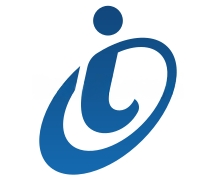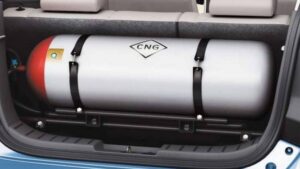
Yes, you can get a job in Canada from Nigeria! The process might seem daunting at first, but with the right information and a strategic approach, your dream of working in the Great White North can become a reality. In this comprehensive guide, we’ll break down the steps you need to take, detailing the costs associated with each stage of the journey.
1. Determine Your Eligibility:
Before embarking on the Canadian job hunt, it’s crucial to assess your eligibility for working in Canada. The eligibility criteria include factors such as your educational background, work experience, language proficiency, and other specific requirements for the job you’re eyeing.
Consider taking language proficiency tests like IELTS or CELPIP and evaluate your credentials against Canada’s Express Entry system.
Estimated Cost: ₦100,000 – ₦150,000 for language proficiency tests and credential evaluations.
2. Research In-Demand Occupations:
Canada has a strong demand for skilled workers in various sectors. Research and identify occupations that are in high demand and align with your skills and experience.
The National Occupational Classification (NOC) can be a valuable resource in understanding the demand for specific professions in the Canadian job market.
Estimated Cost: Free
3. Create an Express Entry Profile:
The Express Entry system is a points-based immigration system used by the Canadian government to manage applications for permanent residence. Create an Express Entry profile, providing accurate information about your skills, education, work experience, and language proficiency. The Comprehensive Ranking System (CRS) will then assess your profile and assign you a score.
Estimated Cost: ₦50,000 – ₦80,000 for the Express Entry application fee.
4. Improve Your CRS Score:
To enhance your chances of receiving an Invitation to Apply (ITA) for permanent residency, consider ways to improve your CRS score. Factors such as obtaining a job offer from a Canadian employer, enhancing language proficiency, and obtaining additional educational qualifications can positively impact your score.
Estimated Cost: Variable, depending on the steps taken (e.g., language courses, educational programs).
5. Job Search in Canada:
While still in Nigeria, start actively searching for job opportunities in Canada. Utilize online job portals, networking events, and professional platforms to connect with potential employers. Securing a job offer can significantly boost your Express Entry CRS score and increase your chances of obtaining permanent residency.
Estimated Cost: ₦20,000 – ₦50,000 for professional networking events and job search platforms.
6. Apply for a Work Permit:
If you secure a job offer, you may need to apply for a work permit to legally work in Canada before obtaining permanent residency. Your employer may need to provide a Labour Market Impact Assessment (LMIA), which demonstrates the need for hiring a foreign worker. Submit the required documents for a work permit application.
Estimated Cost: ₦70,000 – ₦120,000 for work permit application fees and associated costs.
7. Prepare for Arrival:
Once you’ve obtained a job offer and necessary permits, it’s time to prepare for your move to Canada. This includes arranging accommodation, understanding the cost of living in your chosen city, and familiarizing yourself with Canadian culture and lifestyle. Additionally, ensure you have sufficient funds to cover initial living expenses.
Estimated Cost: ₦200,000 – ₦500,000 for initial living expenses, accommodation, and settling-in costs.
8. Apply for Permanent Residency:
After fulfilling the required conditions and spending some time working in Canada, you may become eligible to apply for permanent residency. Explore different immigration pathways, such as the Provincial Nominee Program (PNP) or Canadian Experience Class (CEC), depending on your situation.
Estimated Cost: ₦150,000 – ₦250,000 for permanent residency application fees.
Table of Contents
ToggleHow to Get a Job in Canada with Visa Sponsorship
In Canada, many employers are willing to sponsor foreign workers to fill skill gaps and contribute to the country’s diverse workforce. Visa sponsorship often involves obtaining a work permit, allowing you to legally work and reside in Canada.
2. Identify Occupations with High Demand:
Certain occupations are in high demand in Canada, making them more likely to come with visa sponsorship opportunities. These include professions in healthcare, information technology, engineering, finance, and skilled trades.
Research the National Occupational Classification (NOC) system to identify occupations with a shortage of qualified professionals.
3. Enhance Your Skills and Qualifications:
To stand out in a competitive job market, focus on enhancing your skills and qualifications. Consider obtaining additional certifications, upgrading your education, or gaining relevant work experience in your field.
The more qualified you are, the more attractive you become to Canadian employers seeking skilled workers.
4. Create a Strong Resume and Cover Letter:
Craft a compelling resume and cover letter tailored to the Canadian job market. Highlight your skills, experiences, and achievements in a format that aligns with Canadian expectations.
Showcase how your expertise can contribute to the success of a Canadian employer, making you an appealing candidate for sponsorship.
5. Utilize Canadian Job Portals:
Explore Canadian job portals to search for positions that offer visa sponsorship. Websites like Workopolis, Indeed, and the Canadian government’s Job Bank are valuable resources.
Filter your search based on your skills, qualifications, and the desired location in Canada.
6. Networking and Professional Associations:
Networking plays a pivotal role in securing a job with visa sponsorship. Join professional associations related to your field, attend industry events, and connect with professionals on platforms like LinkedIn.
Building a strong professional network increases your chances of finding employers willing to sponsor your work visa.
7. Research Employers Open to Sponsorship:
Not all employers are open to sponsoring foreign workers, so it’s crucial to research and target those who are. Look for companies with a history of hiring international talent or check their job postings for indications of visa sponsorship. Directly contacting HR departments can also provide valuable insights.
8. Attend Job Fairs and Recruitment Events:
Job fairs and recruitment events in Canada provide excellent opportunities to meet potential employers face-to-face.
Many employers attend these events intending to hire skilled workers, including those requiring visa sponsorship. Be prepared with copies of your resume and a compelling elevator pitch.
9. Consult with Immigration Professionals:
Seek guidance from immigration professionals or consultants specializing in Canadian immigration. They can provide insights into the visa sponsorship process, help assess your eligibility, and guide you on the necessary steps to secure a job in Canada.
10. Explore Provincial Nominee Programs (PNPs):
Some provinces in Canada have specific programs to nominate individuals for permanent residency based on their skills and contributions to the local economy. Research Provincial Nominee Programs (PNPs) and consider applying for jobs in provinces with programs aligned with your qualifications.
11. Express Entry System:
The Express Entry system is a points-based immigration system that ranks candidates based on factors such as age, education, work experience, and language proficiency.
Securing a job offer with visa sponsorship significantly boosts your Express Entry profile, increasing your chances of receiving an Invitation to Apply (ITA) for permanent residency.
related 7 Easy Ways to Move to Canada from Nigeria
Visa Sponsorship jobs in canada.
Certain professions are more likely to offer visa sponsorship due to their high demand in the Canadian job market. Here are some examples:
- Healthcare Professionals: Doctors, nurses, pharmacists, and medical technicians are often in demand.
- Information Technology (IT) Specialists: Software developers, system analysts, and IT project managers are sought after.
- Engineers: Mechanical, electrical, civil, and software engineers are frequently sponsored.
- Skilled Trades: Carpenters, electricians, plumbers, and welders are essential roles in construction and other industries.
- Finance Professionals: Accountants, financial analysts, and investment managers are in demand.
The Easiest Jobs to Get in Canada from Nigeria
Moving to Canada for work is a dream for many Nigerians, thanks to the country’s friendly immigration policies and numerous job opportunities. If you’re considering this move, you might wonder which jobs are the easiest to secure. This article will guide you through some of the easiest jobs to get in Canada from Nigeria and the minimal qualifications needed for each.
1. Home Support Worker
Description: Home support workers assist elderly or disabled individuals with daily tasks such as bathing, dressing, and housekeeping.
Minimal Qualifications:
- High school diploma or equivalent.
- Certification in home support or personal care (often provided through short-term courses).
- Basic First Aid and CPR certification.
- Good communication skills and a compassionate nature.
2. Food Service Worker
Description: Food service workers include roles like waiters, kitchen helpers, and fast food attendants. They take orders, serve food, and maintain cleanliness in dining areas.
Minimal Qualifications:
- High school diploma or equivalent.
- On-the-job training is usually provided.
- Good customer service skills.
- Ability to work flexible hours, including weekends and holidays.
3. Retail Sales Associate
Description: Retail sales associates work in stores, assisting customers, handling transactions, and stocking shelves.
Minimal Qualifications:
- High school diploma or equivalent.
- Previous sales or customer service experience is an advantage but not necessary.
- Good communication and interpersonal skills.
- Basic math skills for handling cash transactions.
4. Warehouse Worker
Description: Warehouse workers are responsible for receiving, storing, and shipping products. They often use machinery to move heavy items.
Minimal Qualifications:
- High school diploma or equivalent.
- Physical fitness and ability to lift heavy objects.
- Training on the job is common.
- Basic understanding of inventory management systems.
5. Cleaner/Janitor
Description: Cleaners and janitors maintain cleanliness in buildings such as offices, schools, and hospitals. They perform tasks like sweeping, mopping, and trash removal.
Minimal Qualifications:
- No formal education required; a high school diploma is a plus.
- On-the-job training provided.
- Attention to detail and ability to work independently.
- Physical stamina to handle repetitive tasks.
6. Taxi/Uber Driver
Description: Taxi and Uber drivers transport passengers to their destinations. They need to know the local area well and provide good customer service.
Minimal Qualifications:
- Valid driver’s license.
- Clean driving record.
- Knowledge of the local area.
- Some companies may require background checks.
7. Security Guard
Description: Security guards protect property and people. They monitor surveillance equipment, inspect buildings, and control access points.
Minimal Qualifications:
- High school diploma or equivalent.
- Security guard training and licensing (requirements vary by province).
- Good observation and decision-making skills.
- Physical fitness and ability to handle potentially stressful situations.
8. Administrative Assistant
Description: Administrative assistants perform clerical duties such as answering phones, managing schedules, and handling correspondence.
Minimal Qualifications:
- High school diploma; a college diploma in office administration is an advantage.
- Proficiency in Microsoft Office and other office software.
- Strong organizational and communication skills.
- Previous experience in an office setting is beneficial.
9. Delivery Driver
Description: Delivery drivers transport goods from warehouses or stores to customers. This role often involves driving long distances and meeting tight deadlines.
Minimal Qualifications:
- Valid driver’s license.
- Clean driving record.
- Knowledge of the local area and ability to use GPS.
- Physical fitness to load and unload goods.
10. Call Center Representative
Description: Call center representatives handle customer inquiries, complaints, and support requests over the phone or via email.
Minimal Qualifications:
- High school diploma or equivalent.
- Good communication skills and a clear speaking voice.
- Basic computer skills.
- Ability to handle stressful situations and provide excellent customer service.
Tips for Securing a Job in Canada from Nigeria
- Polish Your Resume: Ensure your resume is updated and tailored to Canadian standards. Highlight relevant experience and skills.
- Networking: Leverage professional networks, including LinkedIn and industry-specific forums, to connect with potential employers in Canada.
- Job Portals: Utilize job search websites like Indeed, Monster, and the Government of Canada’s Job Bank to find job listings.
- Immigration Programs: Research and apply for relevant immigration programs like the Express Entry, Provincial Nominee Program (PNP), and Temporary Foreign Worker Program (TFWP).
- Preparation: Prepare for interviews by understanding the Canadian work culture and practicing common interview questions.
- Credentials Assessment: If you have professional qualifications, consider having them assessed to ensure they are recognized in Canada.
Conclusion:
Embarking on a journey to secure a job in Canada from Nigeria requires careful planning, dedication, and financial investment.
By following these steps and understanding the associated costs, you can position yourself for success in the Canadian job market. Remember, the key to a successful relocation is thorough research, networking, and a proactive approach. Good luck on your Canadian adventure!









Can you be more specific about the content of your article? After reading it, I still have some doubts. Hope you can help me.
WHAT DO YOU NEEED?